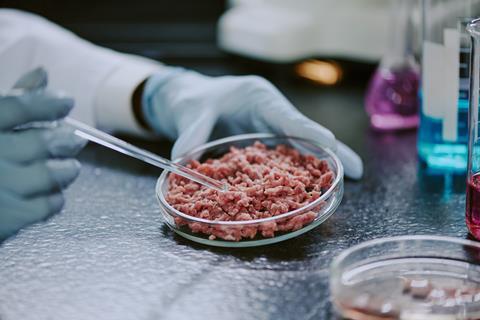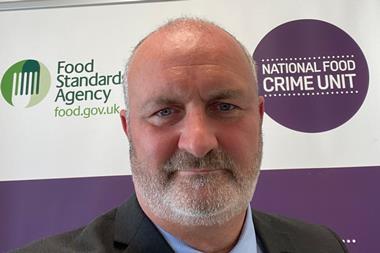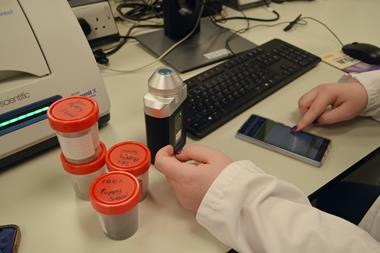
Scientists at the University of Aberdeen have developed a “robust, reliable and highly-sensitive” tool that quickly and reliably identifies rogue ingredients, even in processed and cooked foods.
Described as a “breakthrough” in detecting fraud, the MEATiCode system combines proteomic testing with an advanced database to simultaneously identify multiple meat species in a single processed food sample, the university said.
In initial lab tests of 19 shop-bought products, a team from the institution’s Rowett Institute found that the vast majority (17) contained the ingredients listed on the label.
In two cases however, there were discrepancies. The results from one kebab showed none of the 14% lamb advertised, while another product which claimed to be 60% lamb and 20% chicken was recorded as containing twice as much chicken as lamb.
The Rowett team said the new tool – which is now being further developed to extend to cover other foods, with honey the “next target” – identifies peptides in food samples using liquid chromatography-mass spectrometry (LCMS) then matches them to a bespoke database, “providing a clear picture of the origin and quantity of each meat it contains”.
The system could also be adapted to detect allergens such as nuts, fish and dairy products, extending its role in food safety – as well as expanding the database beyond meat “to protect other sectors from damaging fraud”, they added.
Food fraud was estimated to cost the UK £2bn a year, the scientists said, with notable scandals in recent years including the Horsegate scandal.
MEATiCode can be deployed in any proteomics lab and is faster than DNA-based and other techniques, boasting an ability “to pinpoint ingredients that make up as little as 0.5% of a sample”. It has also been shown to be able to drill down far enough to identify particular breeds, such as Aberdeen Angus.
Renata Garbellini Duft, who led the project in Rowett director Professor Jules Griffin’s lab, said: “Food fraud in the meat industry is a growing concern. Cases of mislabelled or adulterated meat have made consumers question what they’re eating and whether it’s safe.
“MEATiCode represents a big step forward in the fight against food fraud. It provides a highly accurate and reliable way to confirm what’s really in meat products.”
The new testing system could “protect consumers, support honest suppliers and improve food safety”, she added.
“As testing methods evolve, we hope to see more widespread adoption of MEATiCode in quality control and regulatory frameworks worldwide.”
The research team said they had liaised closely with Food Standards Scotland and others during the development process “to understand how the system can be added to the armoury available to bodies tasked with fighting food fraud from an economic and health perspective”.
“Food fraud may harm consumers and can put reputable food producers at risk,” said FSS senior scientific advisor Kasia Kazimierczak.
“MEATiCode can be used as one of the methods to help safeguard product integrity, acting as a tool that allows verification of authenticity with precision,” she added.
“By identifying the presence of undeclared ingredients, it can strengthen consumers’ confidence and supports the credibility of the entire supply chain.”



















No comments yet